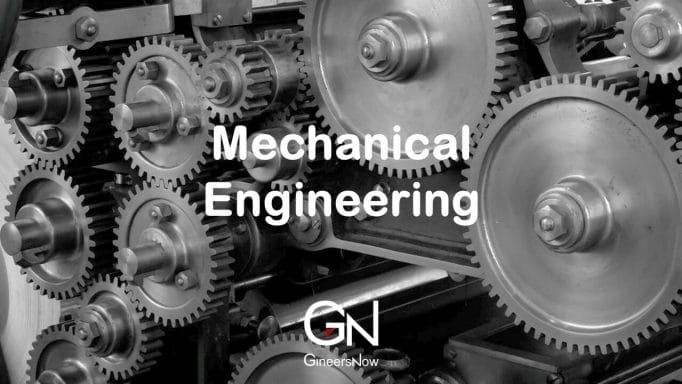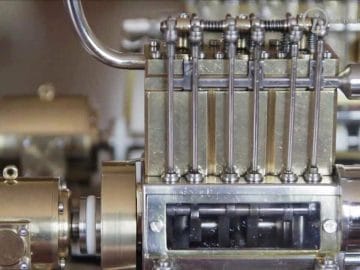Wondering what are the high-paying career paths for mechanical engineers? We got you covered!
Mechanical engineers are highly-trained professionals who design mechanical products or systems. They work in various aspects of product development, using their broad knowledge of design, technology, science, and mathematics to meet product requirements. Mechanical Engineers are currently in high demand in the UAE. These professionals can design and manufacture everything, from tiny parts like miniature connectors to big machine tools like drill presses. Consequently, they are highly sought after in various industries, including the automation, manufacturing, aerospace, and biotechnology sectors. If you are having difficulty deciding on a career path as a mechanical engineer, here are some high-paying options worth considering.
Senior design engineer
Senior design engineers specialize in developing new products. They typically lead a team from a project’s genesis through production. As a senior design engineer, you will primarily use standard composite structural analyses and modeling to create innovative solutions for customer program requirements and needs. The role requires acting as a project manager by working with clients to understand their requirements. Consequently, you must have some decent customer service skills to succeed in this role. For instance, you must be conversant with using email automation tools like the one right here to communicate with clients.
Senior design engineers also liaise between their customers, engineering teams, and other project stakeholders. As such, you must be organized, innovative, and capable of communicating complex concepts to various audiences. You must also be willing to work closely with manufacturers and vendors to arrange orders, improve the delivery process, and negotiate deadlines and costs. You will need a Bachelor’s degree and many years of practical experience to qualify as a senior design engineer. Many successful candidates also typically have professional engineer (PE) licensure. Glassdoor estimates that the national average salary for a senior design engineer in America is $108,828 per year as of 2022.

Corrosion engineer
Corrosion engineering involves the application of natural laws, physical resources, and scientific and technical knowledge to design and implement structures, systems, materials, and procedures for corrosion management. As such, you will determine ways to prevent or repair corrosion on manufacturing plants’ industrial machinery as well as infrastructure projects like waste management facilities, oil and gas pipelines, and metal bridges. Although it shares many similarities with metallurgy, corrosion engineering goes further to tackle issues in cement, ceramics, graphite, and other non-metallic objects. Mechanical engineers who enjoy the theoretical and practical aspects of things will find corrosion engineering a rewarding career. This reality is because the job includes lab and fieldwork repair alike. Your lab work will involve researching various ways to stop materials from corroding. On the other hand, your field work will involve performing repair and maintenance work and gathering data on environmental conditions that impact corrosion.
Instrumentation engineer
Instrumentation engineers focus on equipment that controls and monitors engineering systems. They design, create, test, install, and maintain equipment that ensures that other engineering systems work perfectly. Instrumentation engineers also need to understand how systems work together and where and how to measure acceptable ranges. In this role, you will frequently act as a consultant and provide advice pertaining to processes, equipment, and systems.
You will usually write business proposals, software programs, and reports on your findings. Instrumentation engineers are highly sought after in many industries like nuclear and renewable energy, pharmaceutical, chemical, oil and gas, space research, and independent quality control. Based on your industry, you may need a Bachelor’s or Master’s degree to be a competitive candidate. It would also help to remain current on ever-evolving health and safety regulations for success in this industry.
Automation engineer
Automation engineers design, create and maintain self-operating processes and equipment. They collaborate closely with their clients to understand the tasks that must be automated. Then, they design, test, program, and maintain the system or machine accordingly. It would be best if you were conversant with the latest health and safety regulations as an automation engineer, including sanitation and the proximity of your automated systems to people. As an automation engineer, you will find many job opportunities in the food processing and manufacturing industries since these sectors use robots in their assembly lines to perform particular tasks. Automation engineers usually need a Master’s degree and many years of experience to find high-paying jobs. Indeed.com estimates that you can earn an average base salary of $96,099 annually as an automation engineer.
Powertrain engineer
Powertrain engineers work in the automotive industry, designing various transportation like commercial vehicles, motorbikes, and cars. You will concentrate on powertrain components’ technical performance and aesthetics in this field. You will also focus on the software and electronics used in modern vehicles. Powertrain engineers must calculate project budgets and timescales, construct prototypes and run tests, interpret data, discover top-notch materials, and conduct extensive research on parts. In addition, you are responsible for ensuring that vehicles satisfy the government’s emissions and safety requirements. Finally, you must work closely with clients to satisfy their goals and answer any questions they have.
Research and development engineer
Research and development (R&D) engineers design new manufacturing methods and products. In addition, they improve existing systems to boost safety, productivity, and efficiency. R&D engineers build concept designs, test out prototypes, and help make new products and methods to market. They must also be analytical and innovative enough to perceive problems and find solutions. You should be capable of thriving in a deadline-driven environment and work both alone and with a team to succeed as an R&D engineer. You can enter this field with a Bachelor’s or Master’s degree, but you will need a PhD if you are in competitive fields like aerospace research.
Tool design engineer
Tool design engineering involves improving existing tools and designing new and better ones. Your duties as a tool design engineer include consulting with manufacturers about specifications, drawing up blueprints, and collaborating with teammates to solve issues. You can kickstart your career as a tool design engineer with a Bachelor’s degree in mechanical engineering. Many engineers have advanced degrees, but you can compete with them with sufficient on-the-job experience. You can sometimes take up an entry-level tool design engineer job as a journeyman engineer’s apprentice to enhance your skills in this role.














